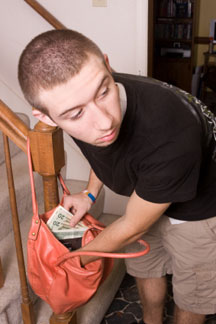Recognizing the Behavioral Signs of Vicodin Addiction
Vicodin addiction is a very common occurrence. Because hydrocodone is the active ingredient in Vicodin, many people who are prescribed it become addicted, as well as those who abuse it for its euphoric side effects. The way a person is behaving can go a long way to helping you discover if the suspected Vicodin addiction is real.
Ways Vicodin Addiction Can Form
According to the NLM, “hydrocodone may be habit-forming.” This fact can refer to a person who has been taking Vicodin for a long period of time for legitimate pain, or to a person who has been abusing the drug for its euphoric effects. No matter how someone starts taking Vicodin, or for what reasons, there is a chance of addiction. People who become addicted to the drug, however, act differently than those who are taking it correctly and avoiding addiction.
Upping Dosages
If you have been taking Vicodin for a while and are beginning to feel the effects of the drug are not as strong as they used to be, you have most likely built up a tolerance to the drug. Many people often compensate for this by increasing their dosage amount. This will only make it worse. If you continue to up your dosage of Vicodin, you will constantly need more and more to feel its effects.
Abusing Vicodin’s Euphoric Effects

Stealing and acting out are signs of addiction.
When you begin to use Vicodin for reasons other than why it is prescribed, it can easily lead to addiction. According to the NIH, “twelfth graders reported non-medical use of… Vicodin at a past year rate of 7.5 percent.” Because of this type of abuse, many young people become addicted to the drug. Vicodin is a Schedule III substance which means it has a moderate chance of dependence (DEA). Abusing the drug, though, will make a person more likely to become addicted, as the drug is usually taken in higher doses and for pleasure instead of medical use.
Acting Out
People who are addicted to Vicodin will often do almost anything to get their next fix. They might act out or put themselves in dangerous situations just to procure more of the drug. Vicodin addiction causes strong mood swings as people are feeling high and euphoric one day and may be crashing the next. There is a strong feeling of apathy when doing large amounts of Vicodin, and the addicted person may become bored with everything but the drug.
Questions to Ask
If you believe that a friend or you yourself may be addicted to Vicodin, it is important to ask these questions:
- Do I spend a lot of time thinking about Vicodin?
- Do I feel I need Vicodin to get out of bed in the morning?
- Do I feel more myself after taking Vicodin, or does taking Vicodin help me forget my problems?
- Have I ignored my responsibilities (work, family, friends, school) in order to get or take more Vicodin?
- Would I be willing to go into a dangerous situation in order to get more Vicodin?
- Are my family and friends concerned about me?
- Have I ignored their concerns because I don’t want to give up Vicodin?
